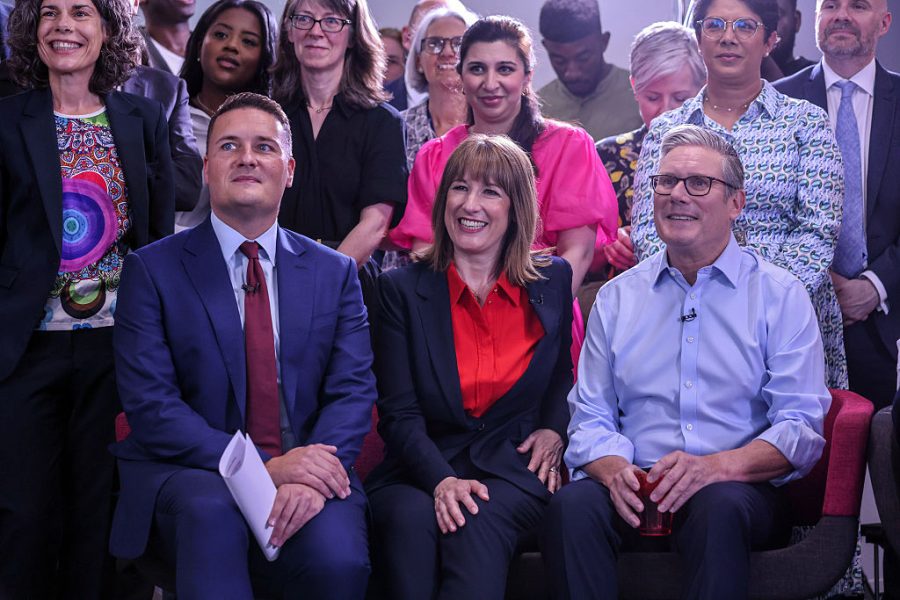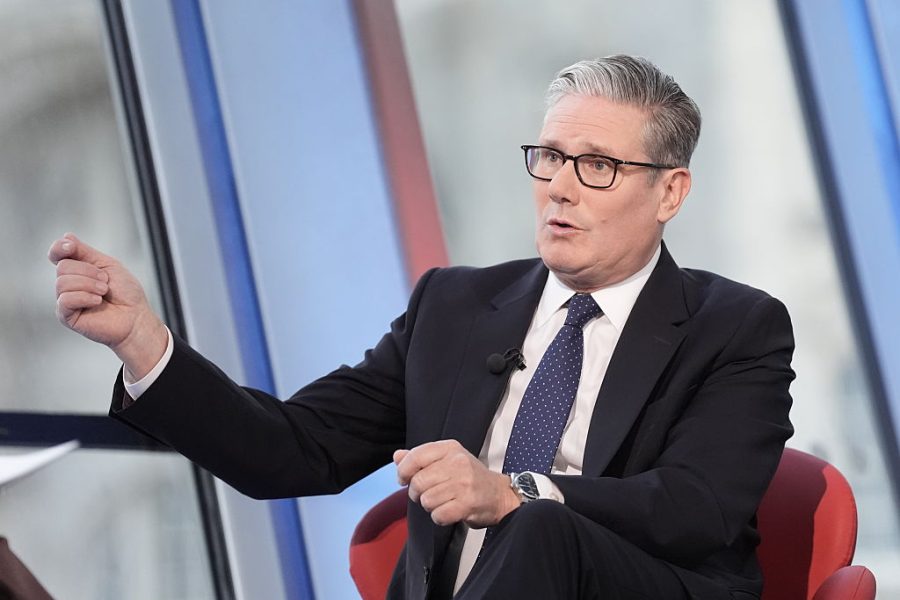Ed Miliband once said of Lord Mandelson that he was ‘his own worst spin doctor’. Even that might be preferable to the current operation, described by insiders as snobbish, chaotic and ‘ultra-factional’. At this rate, having any spinners left would be a start.
‘Phase Two’ of this government, the ‘reset’ announced by Starmer at the beginning of this month including a ‘shake up’ of No. 10, was over almost as soon as it began. It was hoped that the arrival of Blairite comms pro Tim Allen and tabloid veteran David Dinsmore might change matters – and it still might. Yet reading the tea leaves, recent events bode ill.
On Thursday, Steph Driver quit as Starmer’s Head of Communications, meaning No. 10 have chalked up four losses in six months. David Pares, key Starmer spokesman, left the day before. Matthew Faulding, a key fixer in McSweeney’s orbit, is leaving as Parliamentary Labour Party Secretary in November. Allen was hardly through the door before being blamed for the Mandelson saga, too.
So does the problem run deeper than personnel?
Sympathetic Labour commentators, even some willing to pour money into ‘new media’ outlets to support the Starmer project, have been dismissed and ignored. ‘They’d rather lose than ask certain people for help,’ says one – and lose they almost certainly will, unless they change course.
To understand ‘new media’, self-important spinners need only play back the tape to the made-for-TV jamboree of Reform UK’s party conference. A David Bull–Jeremy Kyle panto double act and Andrea Jenkyns vocal masterpiece stole headlines, but behind it is an operation which has plastered the airwaves of insurgent TV channels, cultivated an ecosystem of right-wing commentators and amplified its reach by a slick, creative social media presence.
At the conference, former TalkTV host David Bull MC’d; GB News presenters interviewed former channel colleagues, and new media-tested councillors spoke from the Main Stage – one even models the party’s Reform FC merch brand. The contrast with Labour is painful.
Until recently, any mention of GB News elicited a Munch-esque grimace from Labour insiders, who thought they could ignore the emerging right-wing media ecosystem of which the channel is the prime example.
Until recently, any mention of GB News elicited a Munch-esque grimace from Labour insiders
As necessity dawned on the No. 10 team, it began to change its approach last year. One No. 10 operative described to me the uphill battle to convince an intractable Yvette Cooper, then home secretary, to appear on the channel. Other cabinet ministers still refuse.
School debate-club reasoning pervades the party’s new intake, too. When I spoke at Progressive Britain’s political weekend about ‘tackling difficult topics’, group of new MPs warned me that to appear on the channel ‘legitimised’ it. That was January, when the channel beat Sky News’ viewership for a second month.
Even as the government and No. 10 relented to the inevitable need to put its ministers forward, it still fails to employ other basic yet fundamental tactics such as briefing left-wing outriders. Even those who regularly defend the government have been ignored.
One weary commentator who has been appearing for years told me ‘there is an air of snobbery about the whole operation […] their engagement seems uncoordinated and unsophisticated’. Another simply described the approach as ‘bad vibes, ultra-factional – I’m of the belief they’d rather lose than ask certain people for help’.
Most had contacted the party machinery for a brief. One had received responses, and even then they came intermittently. When one commentator did secure a meeting with No. 10, nothing was done despite them agreeing there was a problem.
A New Media Unit, launched to fanfare in November 2024, hosted an outing to 10 Downing Street for 80 influencers over summer as part of ‘going where the voters are’. One of the invited influencers described it as ‘very awkward’, and another suggested that ‘lots were invited due to follower count but […] just fancied the day out to No. 10’.
It has been left up to individual departments to engage. Tatton Spiller from Simply Politics says that ‘there is lots of “busy” engagement, but very few departments are real about it’. Even when they engage, there is a cookie-cutter approach.
This week, the era of Corbynista chaos made a nostalgic return to public consciousness – yet a rare virtue of the Corbyn-led Labour party was its dedicated communist commentariat brigade, from Novara to the Canary, who successfully nurtured a sympatico media ecosystem for magic Grandpa. Even when others have approached the party to start a centre-left media outlet, it has been ignored.
Another Labour sympathetic analyst tried to set up a new media outlet earlier this year on the centre-left using a mix of podcasts and social media channels. Labour MP Mike Tapp, and a member of Labour’s NEC, both recorded podcasts for the outlet. Engagement with No. 10 was sought but nothing came of it. The analyst told me ‘the party clearly felt they don’t need it as an outlet – acting like it’s 2010 all over again and failing to understand new media.’
So long as No. 10 turn their noses up at new media, kibosh their commentators and treat influencers as unserious, their scant efforts are doomed to fail.







Comments